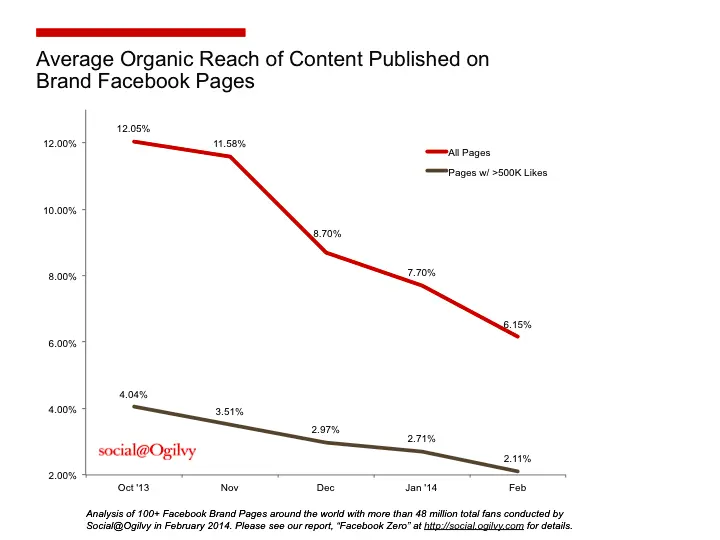Facebook has undoubtedly become an important marketing channel for brands, celebrities & companies alike. It’s a great way to reach a wide, global audience from your desk & hence has become a part of every marketer’s campaign. However, Facebook recently announced changes in its News Feed algorithms to decrease the organic post reach of brand pages. This could be bad news for a marketer. Now, when I say ‘changing their news feed’, I don’t mean their regular tweaks. According to Adam Mosseri, Facebook News Feeds VP, “This one is bigger than the average tweak. It’s not a tweak.”
On January 12th, 2018, Mark Zuckerberg announced the change in Facebook’s News Feed algorithm to prioritize content from “friends, family and groups.” He also stated, “As we roll this out, you’ll see less public content like posts from businesses, brands and media. And the public content you see more of will be held to the same standard—it should encourage meaningful interactions between people.”
What are the changes Facebook is making?
With the change in algorithm, the visibility of organic posts by brands will decrease. This could be a concern for the 6 million businesses that advertise on Facebook.
The second change is the bigger concern. Facebook plans to make the platform less addictive to encourage time well spent versus more time spent, reducing the overall usage of the platform. Mark Zuckerberg wrote, “Now, I want to be clear: by making these changes, I expect the time people spend on Facebook and some measures of engagement will go down”.
With this second change, users will spend less time on Facebook which means lesser opportunities for brands to reach their audiences through organic posts. Let’s take a look at Facebook’s current revenue model and what the new model is likely to look like.
Drop in Organic reach
.
Over the past few years, brand pages on Facebook have been seeing a decline in their organic post reach. There were two reasons that Brian Boland, Facebook’s VP for Advertising Technology mentioned back in 2014-
1. There was simply too much content crowding timelines, making visibility competitive
2. Facebook deliberately wanted to show people content that mattered to them
In 2007, when ‘fan pages’ were launched, admins were under the assumption that all their organic content was reaching their followers. It was only in 2012 that they learned that only a fraction of their Facebook fans were seeing their posts. This was at a mere 16%.
It was then reported (in a study by Edgerank Checker) that this number further dropped from 16% to 6.5%between February 2012 and March 2014.
Further research from Social@Ogilvy suggests that for pages with more than 500,000 likes, organic reach could be as low as 2%!
In 2016, Facebook tweaked its news feed algorithm again to further prioritize content. Lars Backstrom, Facebook’s Engineering Director warned page organic reach could dip further which left reach at less than 2%. Between January and July 2016, page managers saw a decline of 52% in organic reach.




